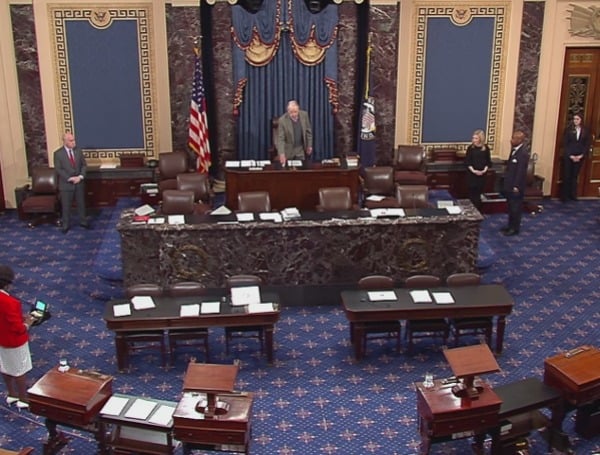Senate Republicans rejected an effort Wednesday to begin debate on the bipartisan infrastructure deal endorsed by President Joe Biden, saying that the vote came too early and that the bill was not yet finalized.
Senate Majority Leader Chuck Schumer scheduled the procedural vote in an attempt to begin debate on the package, but after filing cloture on Monday Republicans came out against it on the grounds that the deal had yet to be put into text and that senators were still finalizing how the plan would be financed.
The bill failed 49-51, with Schumer voting no so that he can bring it up again in the coming days.
But the deal, which is expected to cost about $1.2 trillion over five years, is far from dead, since numerous Republicans objected on procedural grounds rather than the bill itself.
Several lawmakers involved in the bipartisan negotiations originally pleaded with Schumer to delay the vote until Monday, when the deal is expected to be finalized, and even though the bill failed the vote to advance is able to be held again.
“Today we’re not going to be able to support moving forward, we will be able to on Monday,” Ohio Republican Sen. Rob Portman, who has led the talks, told CNBC’s “Squawk Box” Wednesday.
Utah Sen. Mitt Romney, who also was involved in the bipartisan talks, told reporters that the bill is nearing completion and its issues could be resolved as soon as Wednesday, allowing it to be written and voted on next week.
Republicans involved also told reporters Wednesday that at least 11 within their caucus were prepared to vote to advance the bill Monday, and said that their opposition Wednesday was because “we’re not ready.”
“We’re saying we do want to take this bill as soon as we are and that’ll be Monday,” Portman said.
The bill focuses on physical infrastructure like roads, bridges, and waterways, and was the culmination of months of negotiations between Senate Democrats, Republicans and Biden. If it passes the Senate it will head to the House, where both Republicans and progressive Democrats have voiced criticism of it.
Democrats hope to use budget reconciliation to pass their “human infrastructure” bill along party lines in the coming weeks. That proposal, totaling approximately $3.5 trillion, would allocate billions toward renewable energy, child care and other Democratic priorities, and has been met with unified opposition from Republicans.
Support journalism by clicking here to our gofundme or sign up for our free newsletter by clicking here
Android Users, Click Here To Download The Free Press App And Never Miss A Story. It’s Free And Coming To Apple Users Soon.

